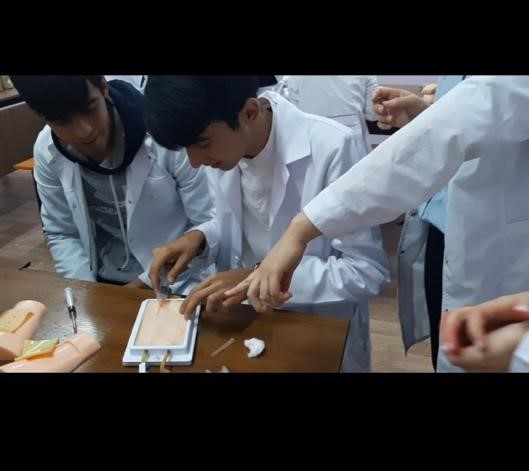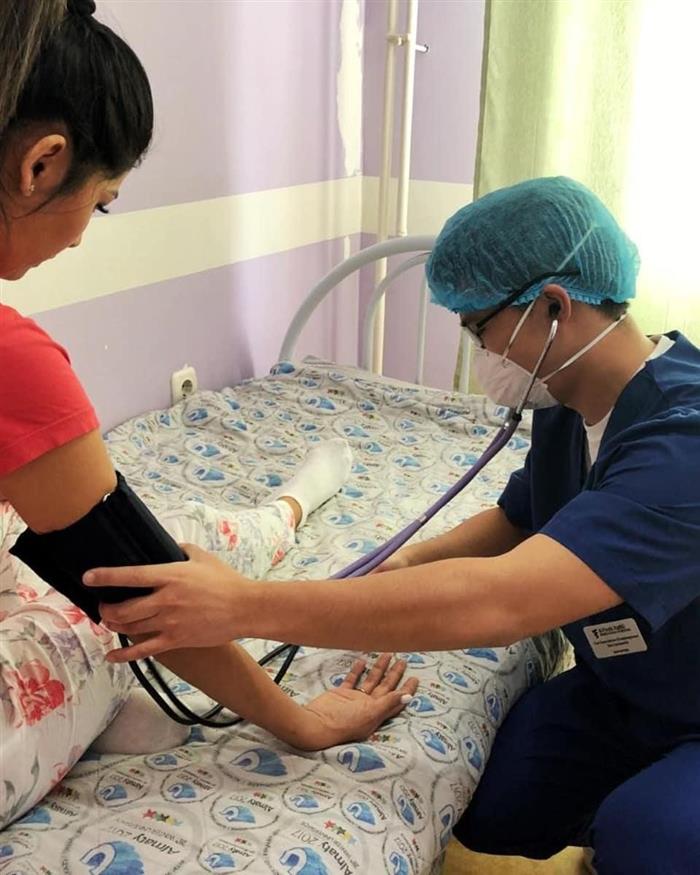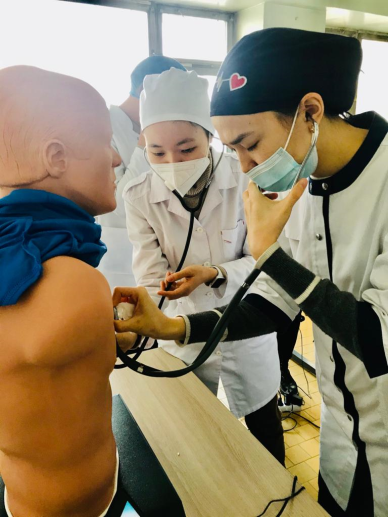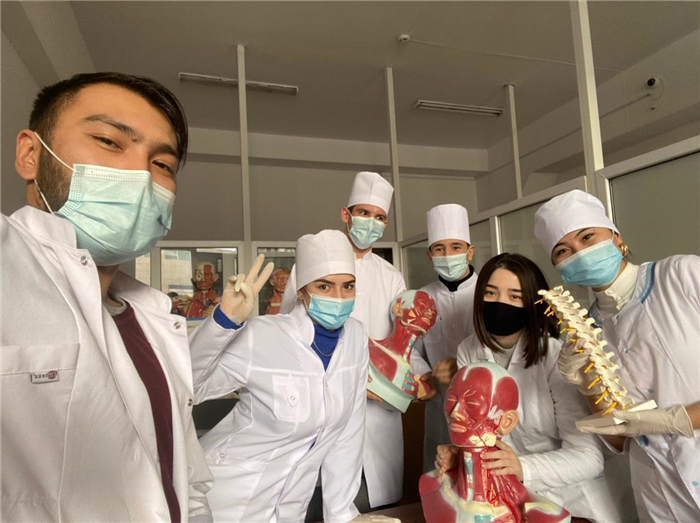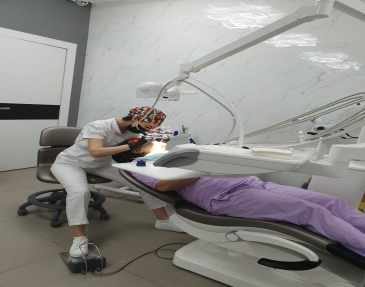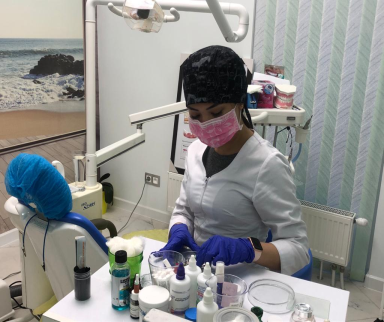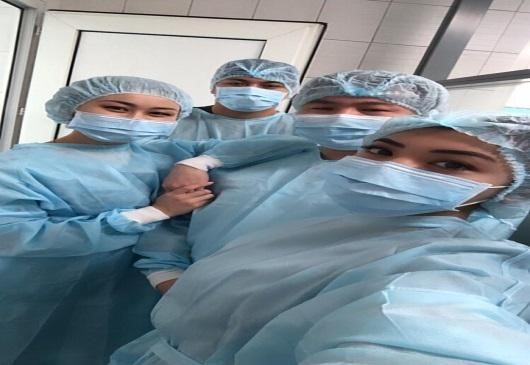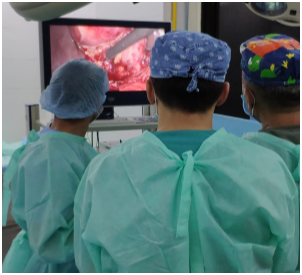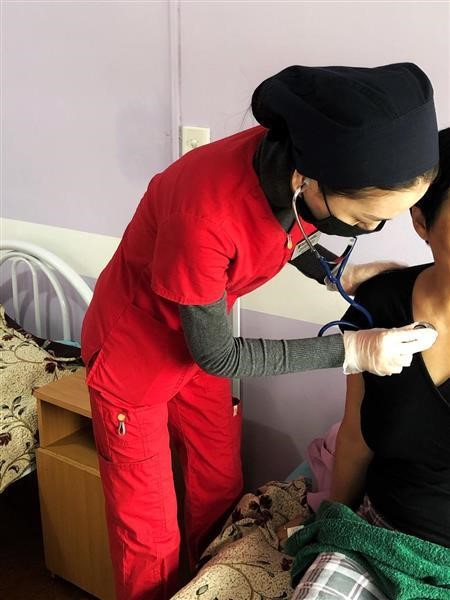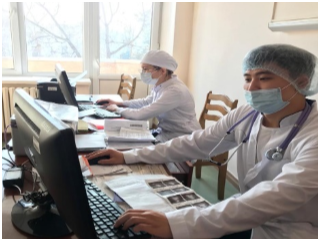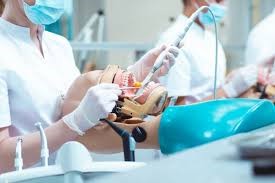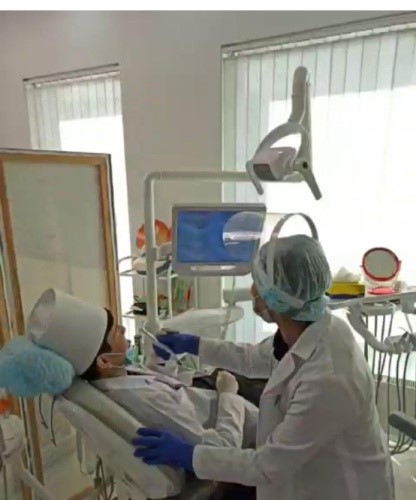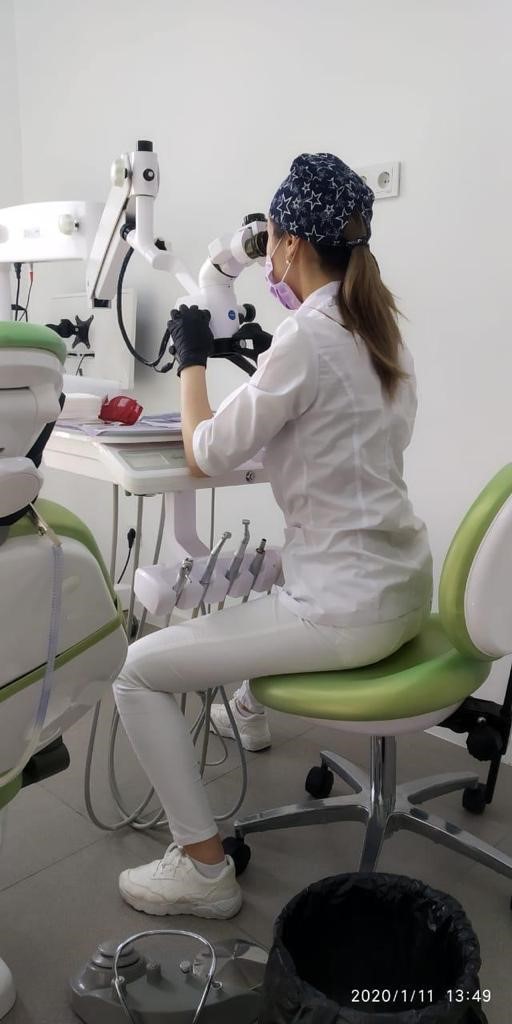Educational program
|
В086 General medicine
|
||
|
|
Description of the educational program |
The program is aimed at training a doctor who is able to provide medical care at the most frequent diseases encountered by any patient, families and the general population capable of learning throughout their professional life, learning through research. The learning outcomes are developed in accordance with the recommendations of the Accreditation Council for Graduate medical Education (ACGME) and the standards of the World Federation of Medical Education - WFME (World Federation of Medical Education) - Global Standards for Quality Improvement in Medical Education. Teaching strategy: active teaching methods (CBL, TBL, PBL), clinical teaching in university clinics, project teaching, performing creative tasks. The use of active teaching methods made it possible to completely rebuild the curriculum according to a modular principle with integrated teaching aimed at the practical application of knowledge and effective clinical training. An assessment system is provided with an increase in the proportion of the practical component from course to course using the most valid methods (SPE, OSKE, medical simulation with a standardized patient, MiniCex) according to the final results of each discipline and each course of study, in accordance with the options of the International Foundations of Medicine (IFOM - International foundations of Medicine). |
|
Duration of training |
5 + 2 - Bachelor's 10 semesters (300 credits) + internship 4 semesters (120 credits)
|
|
|
Graduate model |
3. Demonstrate adherence to the highest standards of professional responsibility and integrity; comply with ethical principles in all professional interactions with patients, families, colleagues and society at large, regardless of ethnicity, culture, gender, economic status or sexual orientation; 4. demonstrate the need for continuous professional training and improvement of their knowledge and skills throughout their professional activities; 5. demonstrate the skills of conducting scientific research, the desire for new knowledge and the transfer of knowledge to others
|
|
|
|
Features of the educational program |
The form of study is daytime, Language of instruction: Kazakh, Russian, English |
|
В087 Dentistry
|
||
|
|
Description of the educational program |
The graduate will be able to provide effective and timely dental care to patients of any age with the most common pathology, based on the principles of evidence-based medicine and humanity for the prevention, diagnosis, treatment of diseases and maintenance of health. Learning outcomes are developed in accordance with the recommendations Accreditation Council for Graduate Medical Education (ACGME) and standards of the World Federation of Medical Education - WFME (World Federation of Medical Education) - Association for Dental Education in Europe (ADEE) Teaching strategy: active teaching methods (CBL, TBL, PBL), trainings, work in a phantom class, work at a real dental appointment. The use of active teaching methods made it possible to completely rebuild the curriculum according to a modular principle with integrated teaching aimed at the practical application of knowledge and effective clinical training. There is a system of assessment with an increase in the share of the practical component from course to course using the most valid methods (OSE, OSE, medical simulation with interactive simulators, WBA) according to the final results of each discipline and each course of study.
|
|
Duration of training |
Duration of study: 5 + 1-Bachelor's degree 10 semesters (300 credits) + internship 2 semesters (60 credits) |
|
|
Graduate model |
|
|
|
|
Features of the educational program |
Language of instruction: Kazakh, English, Russian Qualification: dentist Form of study: full-time |
|
В085 Pharmacy |
||
|
|
Description of the educational program |
The educational program was developed with the aim of training pharmacy specialists who have modern knowledge and skills and are able to provide pharmaceutical assistance in the health care and drug supply system. When developing the Educational Program, the MPharm University of Manchester programs were analyzed and taken into account. The educational program is based on a competency-based approach. The final learning outcomes are formulated in accordance with the recommendations of the WHO (competence of medical professionals) and the standards of the World Federation of Medical Education - WFME (World Federation of Medical Education) - Global Standards for Quality Improvement in Medical Education. |
|
Duration of studying |
5 years |
|
|
Graduate Model |
|
|
|
|
Features of the educational program |
The form of training is full-time, Language of instruction: Kazakh, Russian, English |
|
6B10109 ЖАЛПЫ МЕДИЦИНА ИНТЕРНАТУРА |
||
|
|
Білім беру бағдарламасының сипаттамасы |
Білім беру бағдарламасы құзыреттілік тәсілге негізделген. Оқытудың соңғы нәтижелері ұсынымдарға сәйкес тұжырымдалған жоғары медициналық білім беру жөніндегі Аккредиттеу Кеңесі (ACGME) және Дүниежүзілік медициналық білім беру Федерациясының стандарттары-WFME (Дүниежүзілік медициналық білім беру федерациясы) - медициналық білім беру сапасын арттырудың жаһандық стандарттары. Оқыту стратегиясы оқытудың белсенді әдістерін, университет клиникасында және басқа клиникалық базаларда клиникалық оқытуды, жобалық оқытуды, шығармашылық тапсырмаларды орындауға негізделген. Оқытудың белсенді әдістерін қолдану білімді практикалық қолдануға және тиімді клиникалық дайындыққа бағытталған интеграцияланған оқытумен модульдік принцип бойынша оқу жоспарын толығымен қайта құруға мүмкіндік берді. Медицинаның халықаралық негіздерінің (IFOM – International foundations of Medicine) нұсқаларына сәйкес әрбір пәннің және әрбір оқу курсының соңғы нәтижелеріне сәйкес барынша валидті әдістерді пайдалана отырып, курстан курсқа дейінгі практикалық компонент үлесінің артуымен бағалау жүйесі көзделген. Танылған халықаралық медициналық мектептердің озық тәжірибесін білім беру процесіне енгізу мақсатында білім беру бағдарламасын әзірлеу кезінде Гарвард университеті, Оксфорд университеті, Сингапур Ұлттық университеті (NUS) Медицина мектебінің медицина докторы бағдарламалары талданды және ескерілді. |
|
Оқыту ұзақтығы |
2 жыл (МЖМББ стандарттары 2020 бойынша) |
|
|
Квалификация және академиялық дәрежесі |
Жалпы тәжірибелік дәрігер |
|
|
Бітіруші моделі |
1 Медициналық білім. Адам денсаулығына әсер ететін мәселелерді шешу үшін биомедициналық, клиникалық, әлеуметтік, мінез-құлық және популяциялық ғылымдар туралы білімді қолдану; жеке адамның қоғаммен және қоршаған ортамен өзара әрекеттесуін түсіну; жаңа ақпаратты анықтау және сыни бағалау қабілетін көрсету, осы білімді биомедициналық, клиникалық проблемалар мен ғылыми зерттеулерді шешу үшін қолдану. 2 Дәрігерлік көмек көрсету. Дәлелді медицина және аурулардың алдын алу, диагностикалау, емдеу және денсаулықты сақтау жөніндегі адамгершілік қағидаттарына сүйене отырып, тиімді және уақтылы медициналық көмек көрсету.3. Коммуникация. Науқастармен, олардың отбасыларымен және әріптестерімен өзара әрекеттесу үшін сенімді қарым-қатынас орната отырып, ауызша және жазбаша қарым-қатынас дағдыларын тиімді пайдалану. 4 Кәсібилік. Кәсіби қызметтің, адалдық пен жауапкершіліктің ең жоғары стандарттарына бейілділігін көрсету; пациенттерге, әріптестерге және қоғамға қатысты этикалық және моральдық қағидаттарды сақтау. 5 Жүйелік тәжрибе. Халықтың этникалық белгілері, мәдениеті, жынысы, экономикалық мәртебесі немесе жыныстық бағдары бойынша ерекшеленетін әртүрлі топтарының науқастарға көмек көрсету кезінде сапаға, қауіпсіздікке назар аудара отырып, денсаулық сақтау жүйесі шеңберінде тиімді жұмыс істеу қабілетін көрсету, сондай-ақ оны жетілдіруге ықпал ету. 6. Үздіксіз оқыту және дамыту. Білімді бағалау, талдау және қолдану, өзін-өзі оқытудағы олқылықтарды анықтау, өмір бойы жеке өсу мен оқытуға назар аудару, сонымен қатар адам денсаулығы мен өмір сүру сапасын жақсартуға бағытталған ғылыми зерттеулерге қатысу. |
|
|
Білім беру бағдарламасының ерекшеліктері |
Оқу түрі: күндізгі, Оқыту тілі: қазақ, орыс, ағылшын |
|
|
6B10108 Стоматология интернатура |
||
|
|
Білім беру бағдарламасының сипаттамасы |
Білім беру бағдарламасы ҚазҰУ білім беру үдерісіне танымал халықаралық медициналық мектептердің озық тәжірибелерін енгізу мақсатында әзірленді Білім беру бағдарламасын әзірлеу кезінде Еуроодақ елдерінің бағдарламалары мен Еуропадағы стоматологиялық білім беру қауымдастығының Association for dental Education in Europe (ADEE) ұсынымдары талданды және ескерілді. Білім беру бағдарламасы құзыреттілік тәсілге негізделген. Оқытудың соңғы нәтижелері Accreditation Council for Graduate medical Education (ACGME) ұсынымдарына және Дүниежүзілік медициналық білім беру Федерациясының - Wfme (World Federation of Medical Education) - Global Standards стандарттарына сәйкес тұжырымдалған |
|
Оқытудың ұзақтығы |
1жыл |
|
|
Біліктілігі және білім беру дәрежесі |
Жалпы тәжрибелік тіс дәрігері |
|
|
Бітіруші моделі |
1. Кәсіби жауапкершілік пен адалдықтың ең жоғары стандарттарына берілгендігін көрсету; этникалық белгілеріне, мәдениетіне, жынысына, экономикалық мәртебесіне немесе жыныстық бағдарына қарамастан, пациенттермен, отбасылармен, әріптестермен және жалпы қоғаммен барлық кәсіби өзара іс-қимылда этикалық қағидаттарды сақтау;
|
|
|
Білім беру бағдарламасының ерекшеліктері |
Оқыту түрі күндізгі Оқыту тілі: қазақ, орыс, ағылшын |
|









